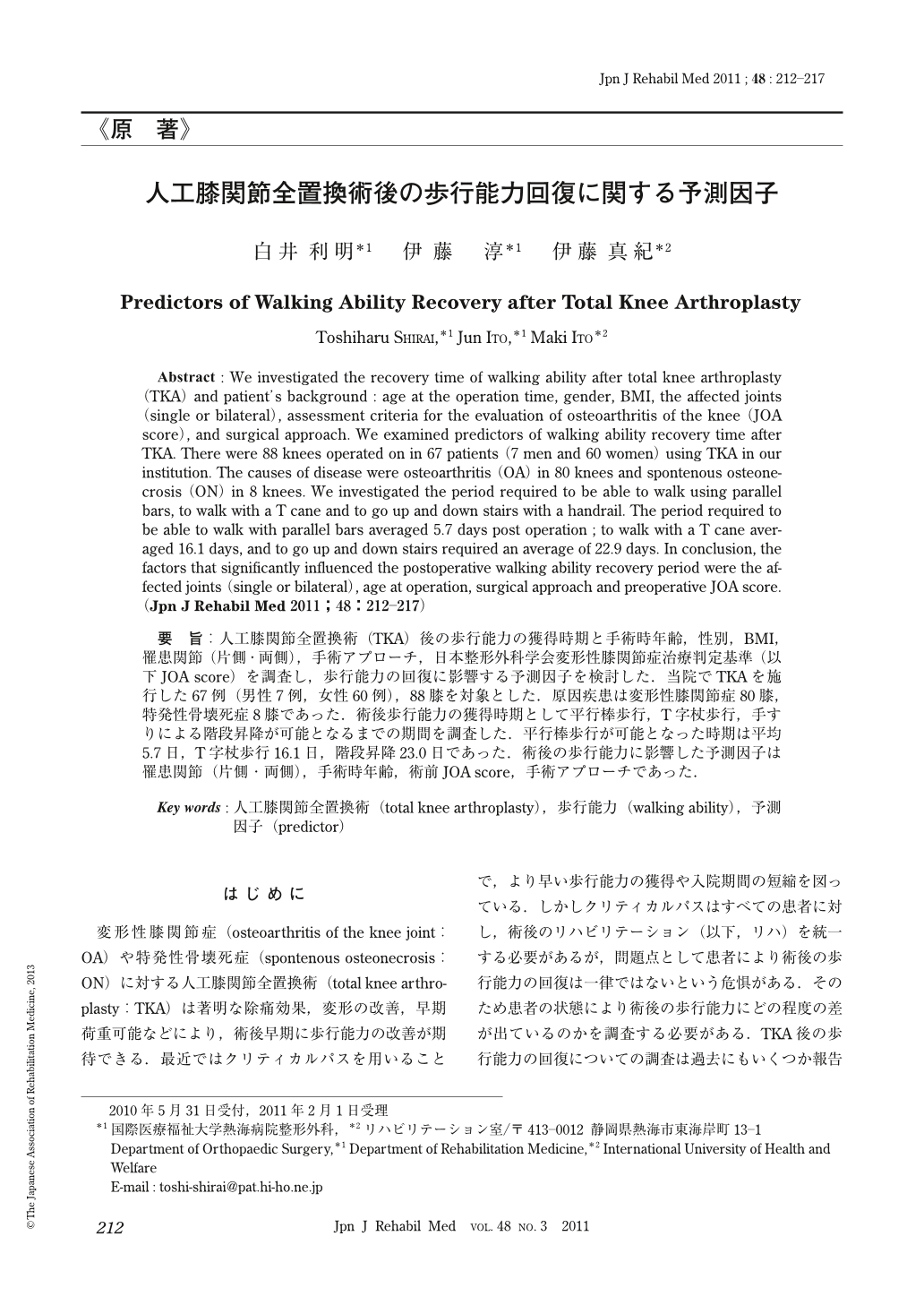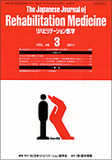Japanese
English
- 販売していません
- Abstract 文献概要
- 1ページ目 Look Inside
- 参考文献 Reference
要旨:人工膝関節全置換術(TKA)後の歩行能力の獲得時期と手術時年齢,性別,BMI,罹患関節(片側・両側),手術アプローチ,日本整形外科学会変形性膝関節症治療判定基準(以下JOA score)を調査し,歩行能力の回復に影響する予測因子を検討した.当院でTKAを施行した67例(男性7例,女性60例),88膝を対象とした.原因疾患は変形性膝関節症80膝,特発性骨壊死症8膝であった.術後歩行能力の獲得時期として平行棒歩行,T字杖歩行,手すりによる階段昇降が可能となるまでの期間を調査した.平行棒歩行が可能となった時期は平均5.7日,T字杖歩行16.1日,階段昇降23.0日であった.術後の歩行能力に影響した予測因子は罹患関節(片側・両側),手術時年齢,術前JOA score,手術アプローチであった.
Abstract : We investigated the recovery time of walking ability after total knee arthroplasty (TKA) and patient's background : age at the operation time, gender, BMI, the affected joints (single or bilateral), assessment criteria for the evaluation of osteoarthritis of the knee (JOA score), and surgical approach. We examined predictors of walking ability recovery time after TKA. There were 88 knees operated on in 67 patients (7 men and 60 women) using TKA in our institution. The causes of disease were osteoarthritis (OA) in 80 knees and spontenous osteonecrosis (ON) in 8 knees. We investigated the period required to be able to walk using parallel bars, to walk with a T cane and to go up and down stairs with a handrail. The period required to be able to walk with parallel bars averaged 5.7 days post operation ; to walk with a T cane averaged 16.1 days, and to go up and down stairs required an average of 22.9 days. In conclusion, the factors that significantly influenced the postoperative walking ability recovery period were the affected joints (single or bilateral), age at operation, surgical approach and preoperative JOA score.

Copyright © 2011, The Japanese Association of Rehabilitation Medicine. All rights reserved.


